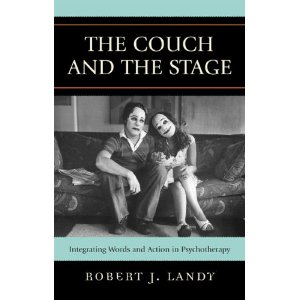This could with a bit of luck spell the end of skeuomorphism at apple.
Apple’s Minimalist Ive Assumes Jobs’s Role for Design – Businessweek:
Continue reading “Apple’s Minimalist Ive Assumes Jobs’s Role for Design – Businessweek”
This could with a bit of luck spell the end of skeuomorphism at apple.
Apple’s Minimalist Ive Assumes Jobs’s Role for Design – Businessweek:
Continue reading “Apple’s Minimalist Ive Assumes Jobs’s Role for Design – Businessweek”
The Noimetic View of Meaning | Psychology Today
Rethinking Psychology
How to shed mental health labels and create personal meaning
by Eric Maisel, Ph.D.Continue reading “The Noimetic View of Meaning | Psychology Today”
İSTANBUL PSİKODRAMA ENSTİTÜSÜ – an interview with Zerka Moreno 2000
(it is on that link but takes a bit of perseverance to find it.)
I was intrigued by the ideas about couple therapy. Pre marital clarifications of expectations.

The Couch and the Stage: Integrating Words and Action in Psychotherapy
Robert J. Landy
Date: Sat, 13 Oct 2012 20:19:29 -0700
Mime-Version: 1.0
Content-Type: text/html;
charset=UTF-8
Content-Transfer-Encoding: 7bit
Content-ID:
A new post on In this moment… my art blog – http://www.walterlogeman.com/art/night/ http://www.walterlogeman.com/art/images/2010/photo6.jpg
Date: Sat, 13 Oct 2012 20:19:07 -0700
Mime-Version: 1.0
Content-Type: text/html;
charset=UTF-8
Content-Transfer-Encoding: 7bit
Content-ID:
A new post on In this moment… my art blog – http://www.walterlogeman.com/art/night-and-day-day/ http://www.walterlogeman.com/art/images/2010/IMG_1134.jpg

I am not as prolific as in my ThousandSketches days. But when the urge comes I find I’m enjoying my productions. I recently sold a few prints and loved making them. Last night I thought about spring. I made the image below, Day I called it. So I also made a Night. Next post.

Small Graces Mapping a Route of Beauty to the Heart of the World
by Jason Sugg
Submitted in partial fulfilment of the requirements for the degree of
Master of Arts in Counseling Psychology
Pacifica Graduate Institute
14 February 2012
Has a whole section on Participation Mystique and I-Thou.
Well researched.
Below is an enticing quote. The reason I’m attracted to this work is that I think that the very relationships we are discussing here, participatory, with the ego dropped, with heightened awareness of self and other, are also the relationships that are needed between therapist and client, and partners in a relationship. It’s not well grasped: they are vital to knowing each other. We can’t know others at this level of consciousness without participating in the relationship with full role reversal. Continue reading “Small Graces: Mapping a Route of Beauty to the Heart of the World”
Another snippet, scouring the web without actually reading the book! (see last post)
PEP Web – The Origins and History of Consciousness: By Erich Neumann.:
“In his Introduction the author writes: ‘It is the task of this book to show that a series of archetypes is a main constituent of mythology, that they stand in an organic relation to one another, and that their stadial succession determines the growth of consciousness. In the course of its ontogenetic development, the individual ego consciousness has to pass through the same archetypal stages which determined the evolution of consciousness in the life of humanity’ (p. xvi). ‘The individualized conscious man of our era is a late man, whose structure is built on early, pre-individual human stages from which individual consciousness has only detached itself step by step’ (p. xx). Hence, Part I deals with ‘The Mythological Stages in the Evolution of Consciousness’ in three sections: A, ‘The Creation Myth’; B, ‘The Hero Myth’; C, ‘The Transform”
I’m thinking of my 18 month old granddaughter – she is certainly developing her own sense of self. Stages makes sense, but what is the sequence.
The relational paradigm is surely a higher stage of consciousness, it includes individuation which can’t be attained without it.